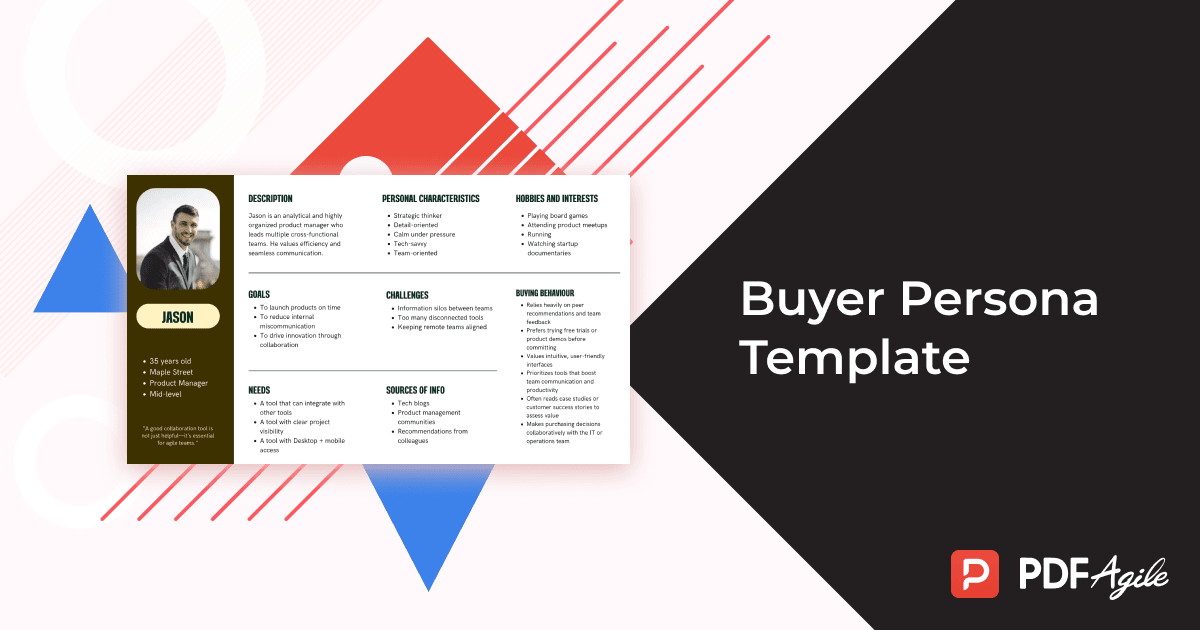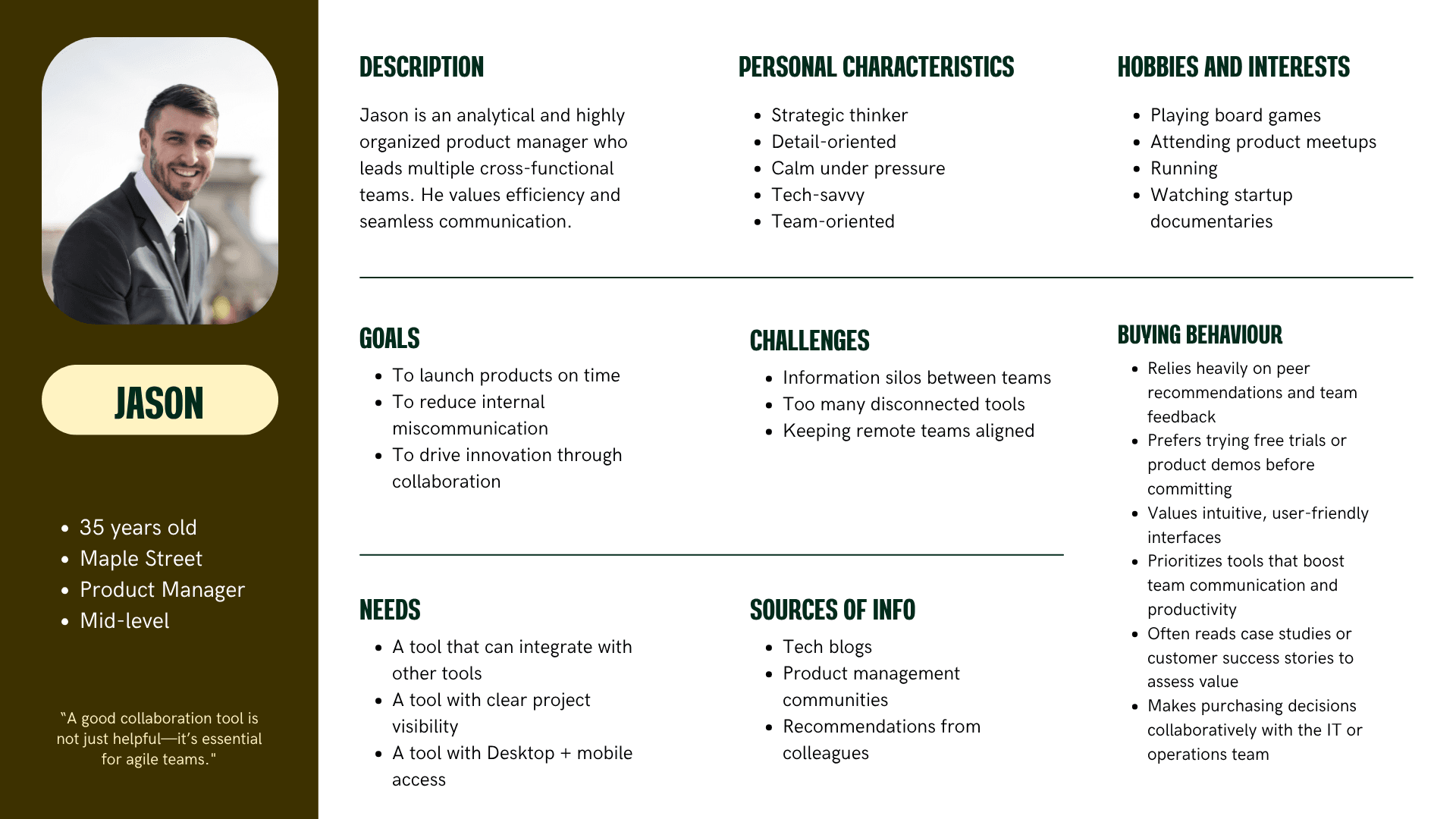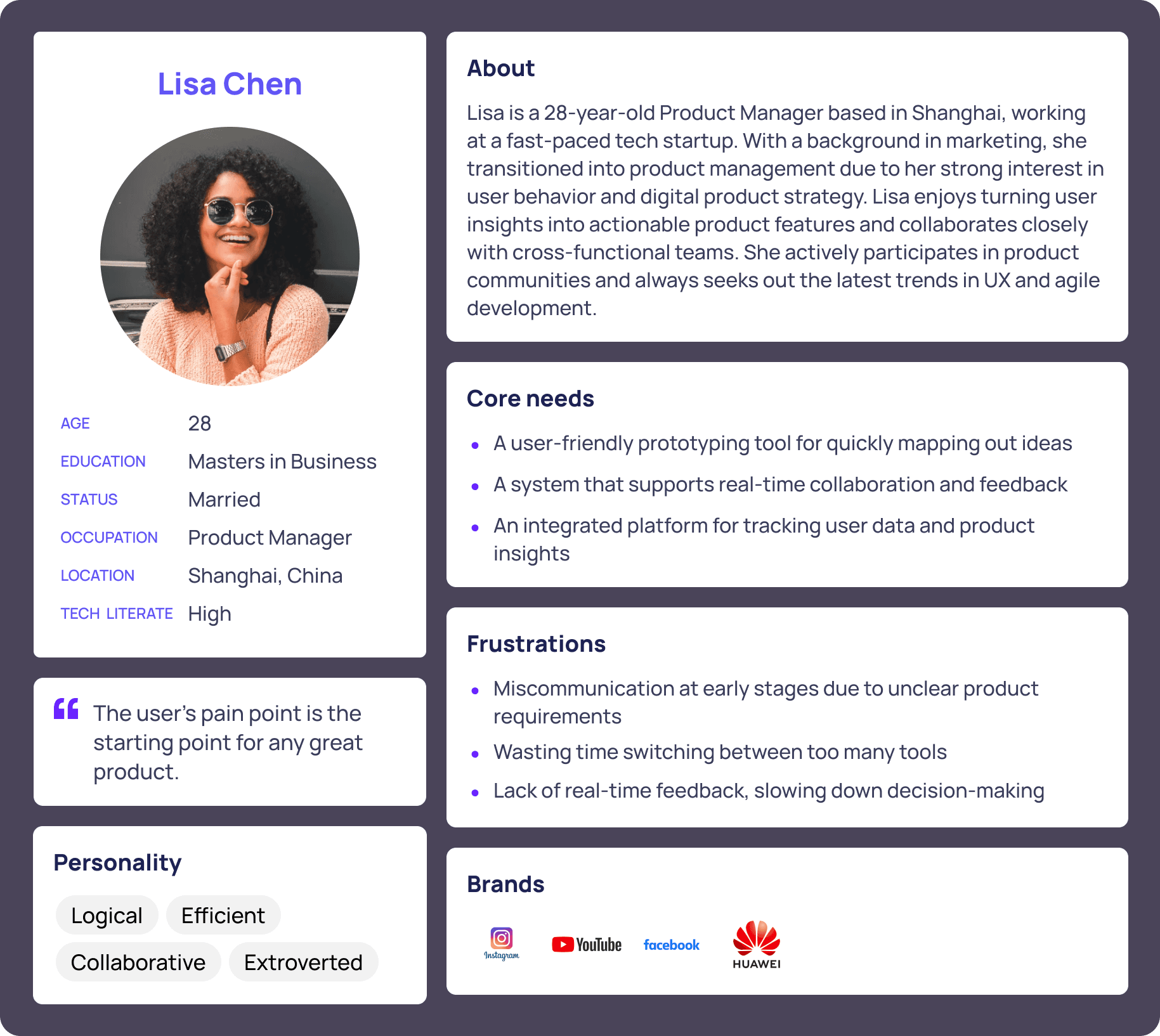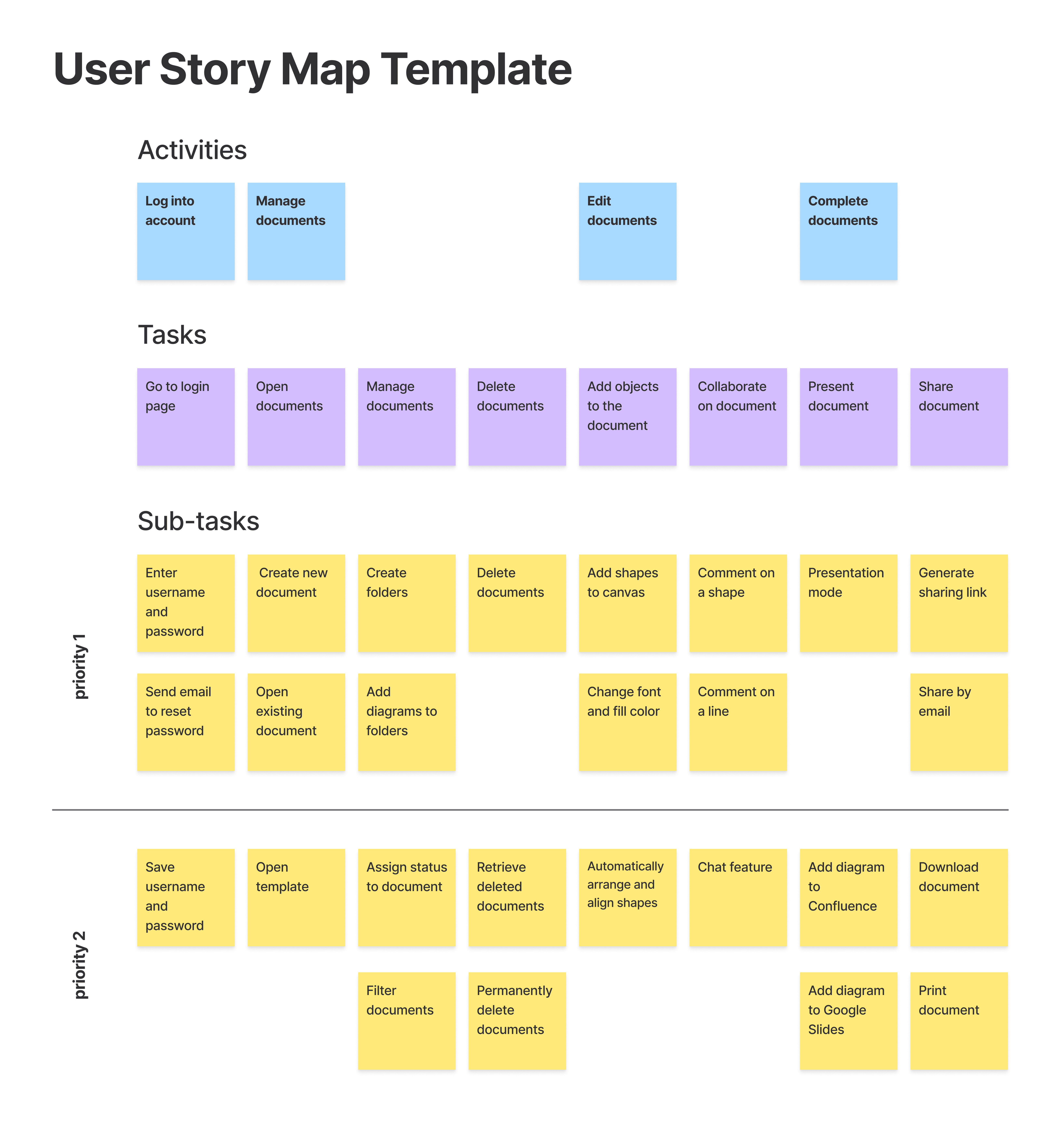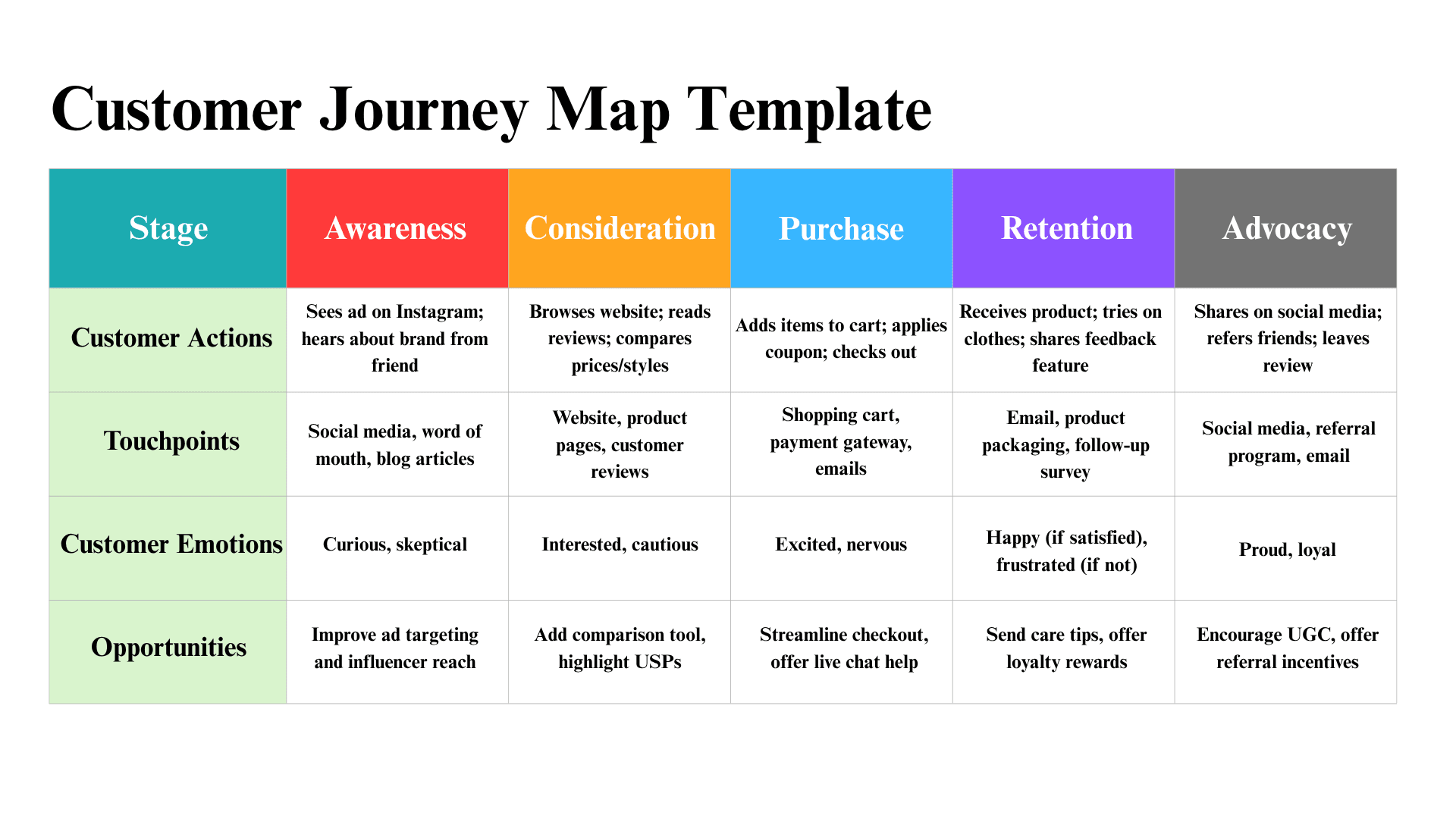Understanding your customers is the foundation of every successful marketing, sales, and product strategy. Yet many businesses still rely on guesswork when it comes to identifying who they’re speaking to. That’s where buyer personas come in.
A buyer persona is more than just a fictional profile—it’s a powerful tool rooted in real customer data that helps you uncover what truly drives your audience. From motivations and goals to buying habits and pain points, a well-crafted persona gives your team the insights needed to attract, engage, and convert your ideal customers more effectively.
In this guide, you’ll learn what a buyer persona is, why it matters, how to build one step-by-step, and how to use our free buyer persona template to bring your audience into sharper focus. We’ll also share a real-world example to help you visualize how it all comes together.
What is a Buyer Persona?
A buyer persona is a semi-fictional representation of your ideal customer based on real data and research. It includes demographic details, behavioral patterns, goals, pain points, purchasing habits, and more. By creating accurate personas, businesses can better understand their audience and tailor marketing, sales, and product strategies to meet specific customer needs.
Think of a buyer persona as a lens through which your team can view your product, service, or message from the perspective of your target audience. This helps align all departments—marketing, sales, product development, and customer service—toward a shared vision of the customer.
Why Buyer Personas Matter
Creating buyer personas isn't just a marketing buzzword—it's a foundational step for businesses looking to build empathy with their users. Here’s why they matter:
Improved Targeting: Tailor your messaging to resonate with the specific motivations, goals, and pain points of your audience.
Stronger Content Marketing: Create blogs, emails, and social posts that solve real problems for your target segments.
Optimized Product Development: Build features or services that align with the actual needs of your customers.
Sales Efficiency: Help sales reps understand what triggers buying decisions and how to approach leads.
Companies that use buyer personas in their marketing efforts see better lead generation, improved engagement, and higher customer retention rates.
Key Components of a Buyer Persona Template
A well-crafted buyer persona includes both demographic and psychographic information. Here are the some elements a buyer persona template may include:
1. Persona Name & Photo
Give your persona a name like “Marketing Manager Mike” or “Startup Founder Sarah” and include a stock photo. This humanizes the profile and makes it easier for teams to reference.
2. Demographics
Include age, gender, education, income level, family status, location, and any other basic identifiers that are relevant to your industry.
3. Professional Information
- Job title and responsibilities
- Industry and company size
- Skills and tools used
- Career goals
This information helps B2B marketers especially to better tailor their outreach.
4. Goals and Objectives
What does this persona hope to achieve in their role or personal life? Understanding their aspirations allows you to position your product or service as the bridge to their success.
5. Challenges and Pain Points
What are the frustrations or blockers preventing them from reaching their goals? These are the problems your product should aim to solve.
6. Buying Behavior
- Where do they go for information (Google, LinkedIn, YouTube, blogs)?
- Do they prefer demos or whitepapers?
- Who influences their decisions (peers, managers, online reviews)?
7. Values and Motivations
Identify what drives them to take action—efficiency, cost-saving, prestige, innovation, etc.
8. Quotes or Real Customer Insights
Use snippets from interviews or surveys to reinforce authenticity. These can provide qualitative color to your persona.
9. Objections or Barriers
What might prevent them from buying? Is it budget concerns, lack of knowledge, or skepticism about ROI?
10. Preferred Communication Channels
Do they respond better to email, SMS, cold calls, or webinars? This helps optimize your outreach tactics.
How to Build a Buyer Persona
Step 1: Conduct Research
Use surveys, interviews, CRM data, and analytics to gather real-world insights from your existing customers. Ask about their habits, goals, and pain points.
Step 2: Identify Patterns
Group your data into clusters—similar job titles, recurring challenges, common goals, etc.
Step 3: Draft Your Persona
Use our template to organize findings into a readable format. Focus on quality over quantity—three to five solid personas are often more useful than a dozen vague ones.
Step 4: Validate and Update
Personas are not static. Revisit them regularly to ensure they evolve with your audience and market conditions.
Buyer Persona Example
To demonstrate how a buyer persona template can be effectively applied, let’s explore a practical example. The following profile—"Product Manager Jason"—illustrates how insights gathered through interviews, user data, and market research can be translated into a strategic tool.
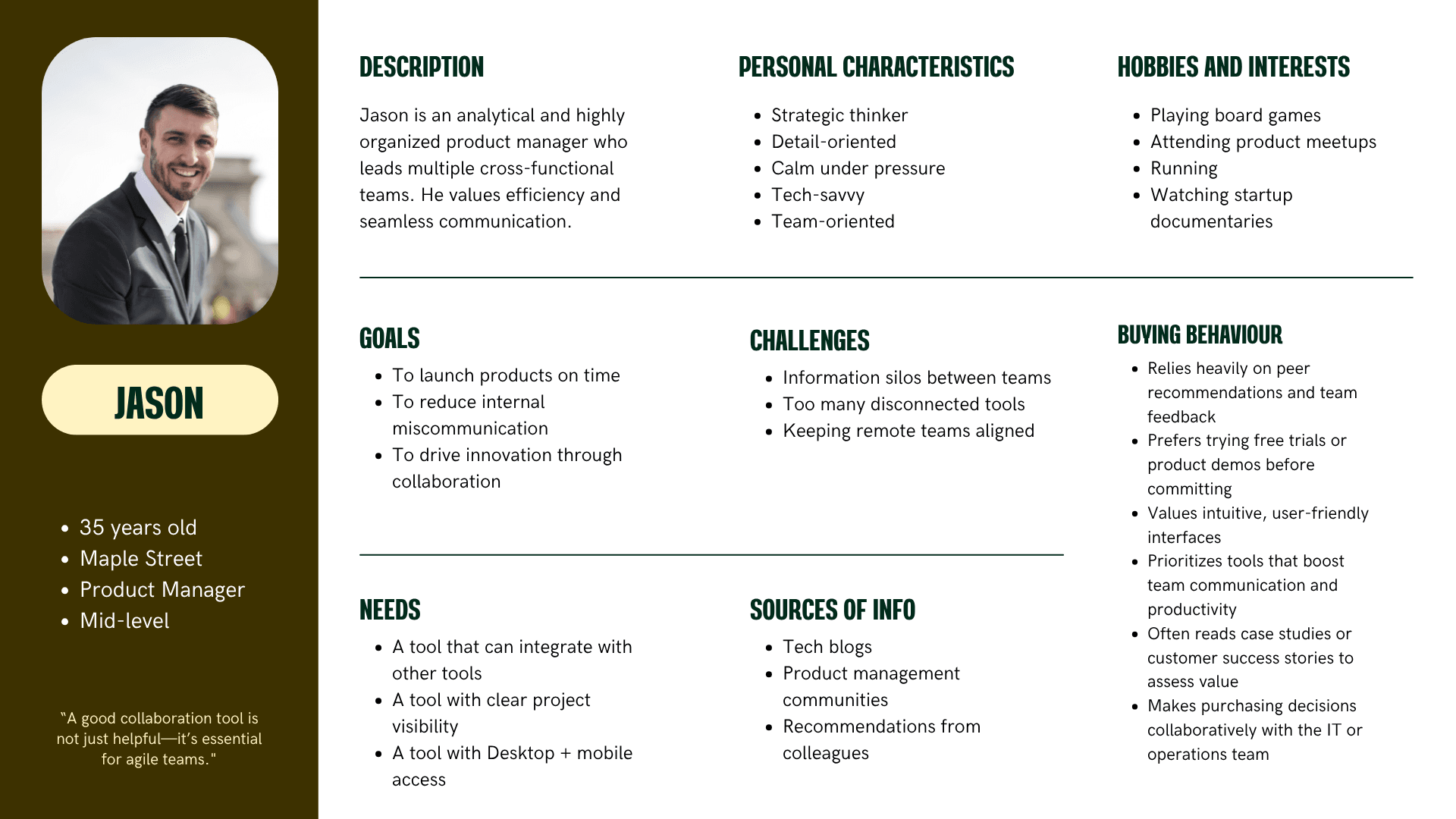
The buyer persona template helps teams move beyond generic assumptions and instead design experiences, messaging, and products that speak directly to the goals and behaviors of their ideal customer.
Free Download: Buyer Persona Template
You can download the Buyer Persona Template mentioned above by clicking Use Template button on this page. Customize it to fit your specific needs and preferences.
